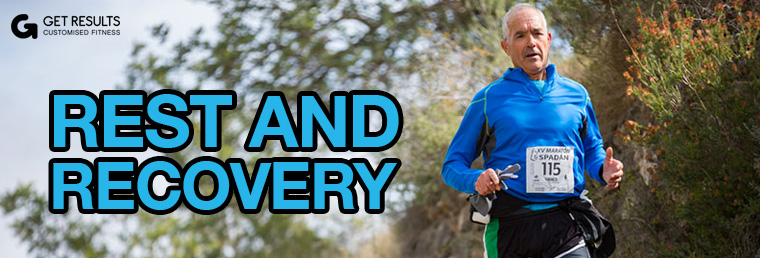
Last week I heard a lecture on exercise for over 50’s that really made me sit up and take notice
The speaker discussed research carried out on the recovery rates in athletes in different age brackets which showed that the 18-21-year-old age group have the maximal recovery rates (no surprise there), but surprisingly those in the 21-24-year-old age bracket experience slower recovery rates. So, by the age of 21-24 our ability to recover is already on the decline!
The point being made by the speaker was this: If our recovery rate is already on the wain by our early twenties, we must take this very seriously as we get into our 30’s 40, 50, 60’s and beyond!
With that in mind, today’s blog is to give you some ideas of what you can do to aid your recovery rates and keep yourself getting fitter or maintain the levels of fitness you already have.
First Off
Before considering workout recovery, it makes sense to look at what you do in your workouts. As we get older (in my opinion) less is better when it comes to the volume of your workouts – no more than 1 hour per workout. For some people, two full body workouts per week are enough particularly if you are over 50; for others three might be best.
Aim for quality over quantity during your workouts and do as many exercises that get as much bang for your buck as you can, so do multi joint, dynamic workouts. Also cycle the intensity of your workouts depending on how you are feeling physically; what else you have going on in your life and how much sleep you have been getting?
Next Up
An obvious one when it comes to recovery, but one that is of the upmost importance; sleep. When you sleep your body does most of its building and repairing of muscles, so aim to get into a good quality sleep routine. Particularly when you are exercising the hours between 10pm and 12pm are vital for muscle repair. Try and keep late nights to a minimum.
Keep moving! On the days you are recovering from harder sessions, aim to keep moving as this can help promote recovery by increasing blood flow to the muscles to clear out the waste products and will also help reduce the stiff muscles that can occur post workout.
Give your body the tools to repair itself. Food is like building blocks, particularly foods that are high in protein and vegetables. Aim to eat plenty of good quality high protein foods for repair qualities of the amino acids in proteins and the antioxidants in fruit and veg will reduce the damaging free radicals that exercise can produce. Drink plenty of water as blood is made up of predominantly water, so a well hydrated body will flush out the waste products from the exercise and bring the nutrients to the muscles.
Consume protein before bedtime to aid with the muscle repair whilst you sleep. It is worthwhile to give a serving or so of protein for your body work with before you go to sleep. In fact, just make sure that you are hitting your protein targets every day as well to ensure you are aiding the recovery: 1-2 grams of protein for every 1lb of weight, so someone who weighs 80kg will be aiming for 80-160grams of protein per day.
Structured Rest
Make sure that you have lighter weeks scheduled in every 8-10 weeks to allow your body some breathing space to recover. Rest doesn’t have to be doing nothing, it can be some lighter workouts with less weight or intensity.
Limit Your Alcohol Intake
Alcohol can take away some of your body’s focus on repairing the muscles as it will be prioritising getting rid of the toxins from the alcohol first. Alcohol will also disrupt your sleep cycle so again this will slow down your recovery.
So there you have some tips to aid your health and fitness for an often overlooked and unspoken part of health.
Remember in the modern world we are almost tuned to push hard, do more, reach further in everything we do, all day every day. But unless you are between 18-21-years-old, this rule should not apply to your fitness routine. If you aren’t currently – put focus on your recovery strategies, you might never reach your full potential with your health and fitness plan.
Paul


